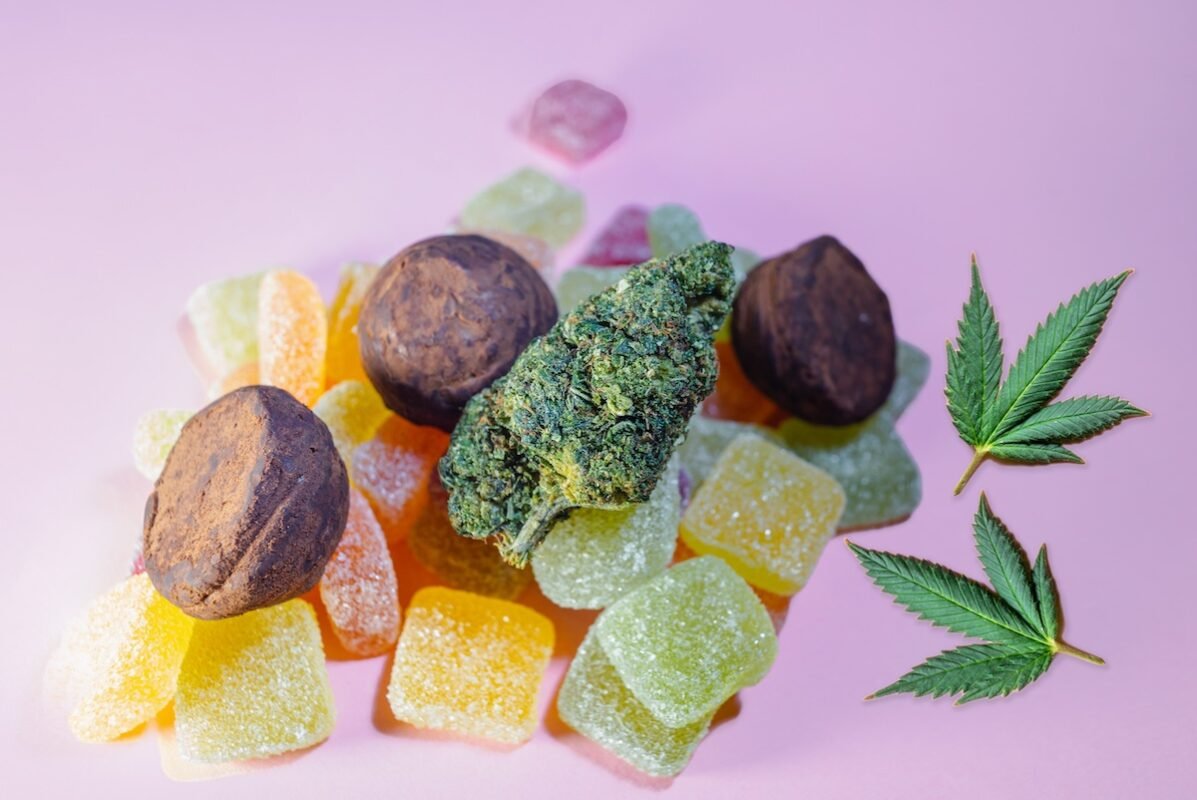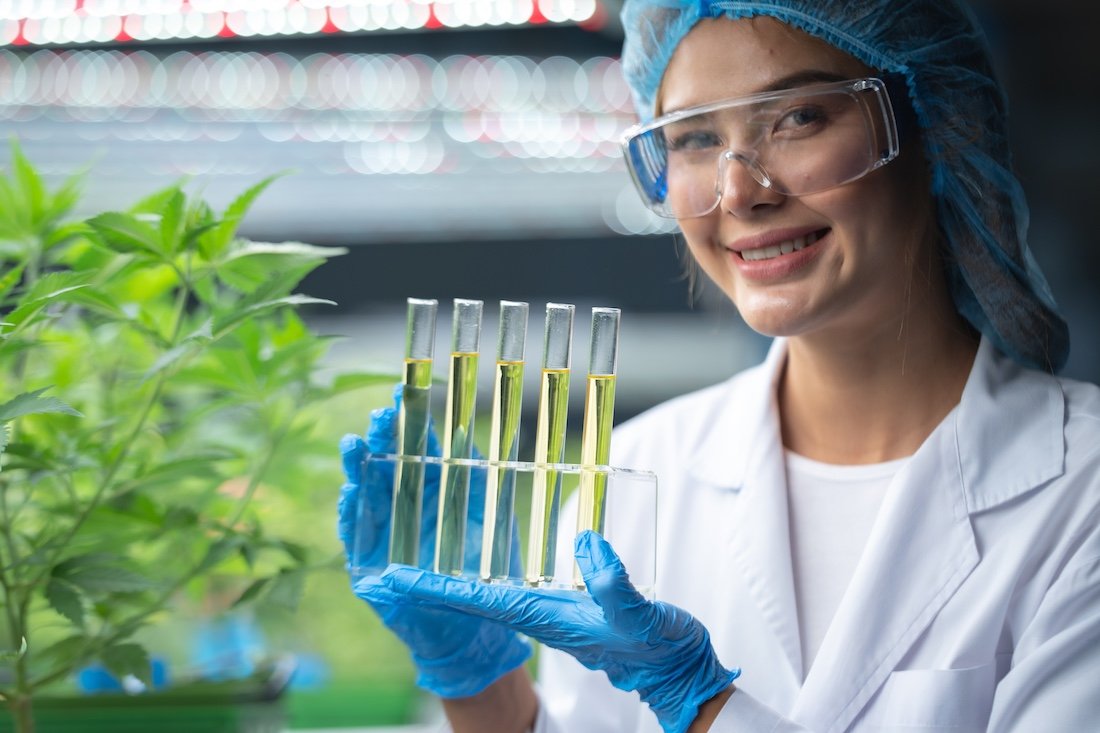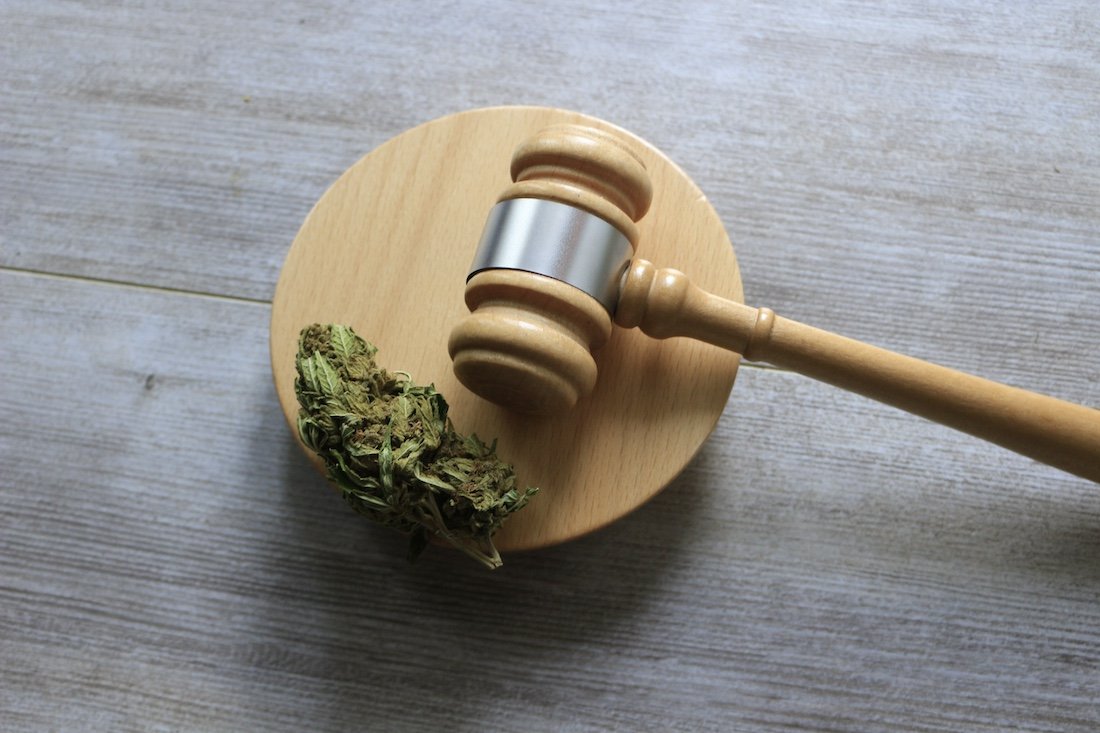Tetrahydrocannabinolic acid (THCa) is often misunderstood due to its close association with THC, the well-known psychoactive compound in cannabis. While they share a similar name, their effects and roles in the cannabis plant are quite distinct. One of the most common misconceptions is that THCa can get you high in its natural form. This blog will clarify how THCa works, its differences from THC, and why understanding this compound matters for cannabis consumers.
At StashDoor, we believe in empowering our customers with accurate information to make informed decisions about their wellness journey. As a trusted source for high-quality, lab-tested THCa products, we are committed to debunking myths and providing clarity about the benefits and proper use of this versatile cannabinoid. Whether you’re curious about its properties or exploring new ways to incorporate cannabis into your lifestyle, StashDoor is here to guide you every step of the way.
Myth 1: THCa is Psychoactive in Its Natural Form
A widespread myth about THCa is that it causes psychoactive effects similar to THC. This confusion stems from their chemical similarities, but in reality, raw THCa does not produce a high because it hasn’t undergone decarboxylation—a process critical for activating THC’s psychoactive properties. In its raw state, THCa has an additional carboxyl group in its molecular structure that prevents it from binding effectively to CB1 receptors in the brain, which are responsible for creating the euphoric effects associated with cannabis use.
Decarboxylation occurs when cannabis is exposed to heat or prolonged light exposure, as seen during smoking, vaping, or cooking. The heat removes THCa’s carboxyl group, converting it into Delta-9 THC, the compound that interacts with the endocannabinoid system to produce a high. Without this conversion, THCa remains inert in terms of psychoactive effects, even if consumed in large amounts. This also means that when heated, such as smoking THCa flower or vaping THCa oil, it gets you high in the same way cannabis does. In fact, THCa products can be quite potent when heated this way.
So, for instance, raw cannabis products like fresh plant juice, smoothies, or unheated tinctures will not lead to the intoxicating effects typically associated with cannabis. Instead, these products allow users to experience the potential therapeutic benefits of THCa without any psychoactivity. Studies suggest THCa may have anti-inflammatory, anti-nausea, and neuroprotective properties, making it an appealing option for individuals seeking wellness solutions without altering their mental state.
This distinction is critical for both recreational and medical users. Recreational consumers should understand that unheated cannabis won’t deliver the effects they might expect, while medical users can take advantage of THCa’s potential health benefits without the risk of impairment. Misunderstanding this difference can lead to frustration or misuse, so knowing when and how decarboxylation matters is key to getting the most out of your cannabis experience. Whether you’re experimenting with cannabis for the first time or an experienced user exploring new options, recognizing that THCa is non-psychoactive in its natural state is fundamental to making informed choices.
Myth 2: THCa and THC Are Legally the Same
A common myth surrounding THCa is that it is legally treated the same as THC, which leads to unnecessary confusion for consumers. While both compounds are derived from the cannabis plant and share chemical similarities, they are regulated very differently under current U.S. law. THCa is distinct in its raw form and does not fall under the same strict legal restrictions as THC, particularly when derived from hemp.
Under the 2018 Farm Bill, hemp-derived products are federally legal as long as their Delta-9 THC concentration remains below 0.3% on a dry weight basis. This legal framework applies to hemp-derived THCa because, in its raw form, it does not produce the psychoactive effects associated with THC. However, this legality is conditional. THCa can convert to THC when exposed to heat through decarboxylation, which complicates its status in certain contexts.
Because of this nuance, consumers need to ensure they are purchasing THCa products from reputable, compliant sources. Suppliers like StashDoor provide lab-tested products that adhere to federal and state regulations. These tests confirm that the Delta-9 THC levels remain within the legal limit, offering consumers peace of mind when purchasing THCa. Non-compliant products or those from unreliable sources may exceed THC thresholds, putting buyers at risk of legal consequences.
It’s important to understand that while THCa itself is non-psychoactive and legal in many jurisdictions, its potential conversion to THC means that proper storage and usage are key to staying within legal boundaries. For instance, leaving THCa-rich products in direct sunlight or subjecting them to heat can unintentionally increase their THC levels, creating legal complications. By buying from trusted sources and staying informed about the legal framework, consumers can enjoy the benefits of THCa without risking unintended legal issues.
This distinction underscores the importance of transparency in the cannabis industry. Providers like StashDoor go the extra mile to ensure compliance, offering not only quality assurance but also detailed lab results so customers know exactly what they’re purchasing. By dispelling the myth that THCa and THC are legally identical, consumers can make more informed decisions and use cannabis products responsibly.
Myth 3: THCa Has No Therapeutic Benefits
One of the most persistent myths about THCa is that it has no therapeutic value and serves only as a precursor to THC. This misconception overlooks the growing body of research that suggests THCa has unique properties and potential benefits in its raw form, independent of its psychoactive counterpart.
While THCa is often associated with THC because of its role in the decarboxylation process, it is a distinct compound with standalone properties. Emerging studies and anecdotal evidence point to THCa’s potential in reducing inflammation, a key factor in many chronic conditions such as arthritis and autoimmune diseases. Research has also highlighted THCa’s ability to help with nausea and vomiting, making it a candidate for therapeutic use in conditions like chemotherapy-induced nausea. Additionally, some studies suggest that THCa may offer neuroprotective benefits, which could make it valuable in managing neurological disorders such as Parkinson’s disease and epilepsy.
THCa’s therapeutic potential is not tied to its ability to produce a high, which is why it’s gaining attention among individuals seeking alternatives to traditional medicine without the psychoactive effects of THC. For instance, consuming raw cannabis rich in THCa, such as through juicing or tinctures, allows users to access these benefits without experiencing euphoria or impairment. This makes THCa particularly appealing to those who need relief while maintaining full functionality.
Despite its promising properties, research on THCa is still in its early stages. The compound’s legality and non-psychoactive nature make it an exciting area for further exploration, particularly as the cannabis industry continues to evolve. By purchasing THCa-rich products from trusted sources like StashDoor, consumers can safely explore its potential benefits. StashDoor ensures its products are lab-tested and compliant, providing transparency and peace of mind for those looking to incorporate THCa into their wellness routines.
This myth not only undervalues the therapeutic potential of THCa but also highlights the need for continued education and research. As more studies emerge, it becomes increasingly clear that THCa offers more than just a pathway to THC—it is a compound with its own set of valuable properties, making it a worthwhile addition to the wellness landscape.

How to Use THCa Responsibly
Using THCa responsibly begins with understanding its unique properties and consumption methods. Unlike THC, THCa in its raw form is non-psychoactive, making it versatile for individuals seeking wellness benefits without the high. To maintain its natural properties, THCa can be consumed in ways that avoid decarboxylation, such as through raw cannabis juicing, tinctures, or capsules. These methods preserve its chemical structure, allowing consumers to explore its potential benefits for inflammation, nausea, or neuroprotection without altering its non-psychoactive nature.
When purchasing THCa products, it’s crucial to choose third-party lab-tested options to ensure safety, compliance, and potency. Lab reports verify that the product adheres to the federal THC limit of 0.3%, as required under the 2018 Farm Bill. Reputable sources like StashDoor offer transparency through detailed certificates of analysis, which not only confirm compliance but also ensure the product is free from harmful contaminants like pesticides or heavy metals. Responsible use begins with trusted products.
Another important aspect of using THCa responsibly is recognizing its legal distinction from THC. Because hemp-derived THCa qualifies as hemp under federal law, it allows consumers to experience the benefits of potent THC when decarboxylated while staying within legal boundaries. This offers a unique opportunity for individuals in states with strict cannabis laws to explore the compound without fear of legal repercussions. However, it’s important to monitor heating methods that convert THCa into THC, as exceeding federal THC limits can have legal consequences.
By focusing on compliance, quality, and informed consumption, individuals can responsibly incorporate THCa into their wellness routines. StashDoor simplifies this process with a reliable selection of lab-tested, compliant THCa products, making it easier for consumers to enjoy the compound’s benefits confidently and legally.
Experience the Benefits of THCa with StashDoor
THCa offers a unique opportunity to explore the potential benefits of cannabis without the psychoactive effects of THC in its raw form. By debunking common myths and understanding how to use it responsibly, you can make informed decisions that align with your wellness goals. Whether you’re seeking therapeutic benefits or simply exploring cannabis alternatives, THCa stands out as a versatile and legally compliant option.
StashDoor provides high-quality, lab-tested THCa products designed to meet your needs while ensuring compliance with federal and state laws. Shop confidently, knowing you’re getting safe, reliable, and effective options delivered discreetly to your door. Unlock the potential of THCa today and experience a smarter way to elevate your wellness journey.
Legal Disclaimer:
This content is for informational purposes only and is not intended to provide legal or medical advice. Always consult with a qualified healthcare professional or legal expert regarding cannabis use and compliance with state and federal laws. StashDoor products comply with the 2018 Farm Bill, containing less than 0.3% Delta-9 THC by dry weight, but users are responsible for ensuring compliance with local regulations.










